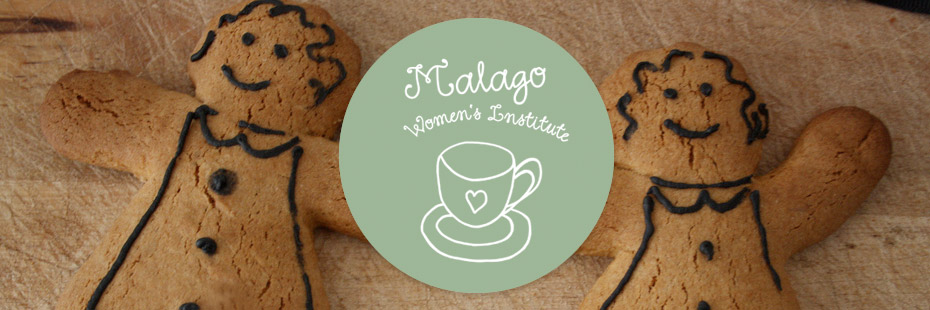The Women’s Institute has its origins in Canada. Following the avoidable death of her infant due to contaminated milk, Adelaide Hoodless set about campaigning for domestic science to be taught in schools. She addressed a group of farmer’s wives in 1897, who were inspired to form the first WI, mirroring the ‘Farmers Institute’ and including an educational programme.
The organisation grew rapidly and was replicated in Britain from 1915. It was backed by government for the duration of the First World War, with a remit to promote domestic food production.
Over the years the Women’s Institute (WI) has campaigned on a wide range of issues that matter to women and their communities, including Equal Pay in 1942, Breast Cancer Screening in 1975, Aids in 1986 and the introduction of new legislation EU to reduce the threat of hazardous chemicals in everyday products in 2006. Today our campaigns range from climate change and ending violence against women to the plight of the honey bee.
Over the years the Women’s Institute (WI) has campaigned on a wide range of issues that matter to women and their communities, including Equal Pay in 1942, Breast Cancer Screening in 1975, Aids in 1986 and the introduction of new legislation EU to reduce the threat of hazardous chemicals in everyday products in 2006. Today our campaigns range from climate change and ending violence against women to the plight of the honey bee.
Every year WI members have the chance to put forward issues or ‘resolutions’ that they would like the national body to campaign on. These resolutions go through a year long debating and consultation process by the membership. Once the resolutions have been short-listed by the membership a select number are chosen for discussion at the Annual General Meeting (AGM) in June. If passed, these then become mandates and form the basis of campaigning activities in the years ahead. This process ensures that our campaigns have been through a democratic process involving all members and come from the grassroots of the organisation.
The Public Affairs Department carries out the campaigning, lobbying, policy and research work of the National Federation of Women’s Institutes (NFWI). The department aims to ‘enable WI members to turn their concerns into campaigns, and thus bring influence to bear on decision-makers and opinion-formers about local, national and international issues.’ We achieve this through the resolution/ mandate process. The department represent the NFWI at a national level with policy-makers, produce supporting notes for resolutions and material and information to raise awareness, enable all members to lobby and campaign, and to take personal action on the mandate.
The national resolutions process is as follows:
June
Resolution submission form sent to WIs.
Resolution submission form sent to WIs.
September
Resolution submission deadline.
Resolution submission deadline.
October
The ‘long-list’ of resolutions is sifted and reduced to a ‘short-list’ of approximately 10
resolutions. The sifting is done by a committee made up of federations representatives
(rotated between feds), NFWI officers, members of the Public Affairs committee.
The ‘long-list’ of resolutions is sifted and reduced to a ‘short-list’ of approximately 10
resolutions. The sifting is done by a committee made up of federations representatives
(rotated between feds), NFWI officers, members of the Public Affairs committee.
November
The short-list of resolutions competed with background notes are published for members to
consider.
The short-list of resolutions competed with background notes are published for members to
consider.
January
Members have the opportunity to vote for their preferred resolution by completing the
voting slips received through WI Life. These should be handed to rep within their WI, who
then forwards them to the Federation by 31st January.
Members have the opportunity to vote for their preferred resolution by completing the
voting slips received through WI Life. These should be handed to rep within their WI, who
then forwards them to the Federation by 31st January.
April/May
WIs discuss the final resolution and individual members use their voting slips received via
WI Life to either support or oppose the resolution becoming a mandate.
WIs discuss the final resolution and individual members use their voting slips received via
WI Life to either support or oppose the resolution becoming a mandate.
June
The resolution is discussed and voted on at the AGM. WIs are represented.
The resolution is discussed and voted on at the AGM. WIs are represented.
Federations and individual WIs are also able to campaign as they see fit. They should be selected democratically and approved by the organisation, which is both non-partisan and secular.
If members have a concern that they would like turning into a campaign, either at local, federation or national level, then speak out and let your committee know.

No comments :
Post a Comment